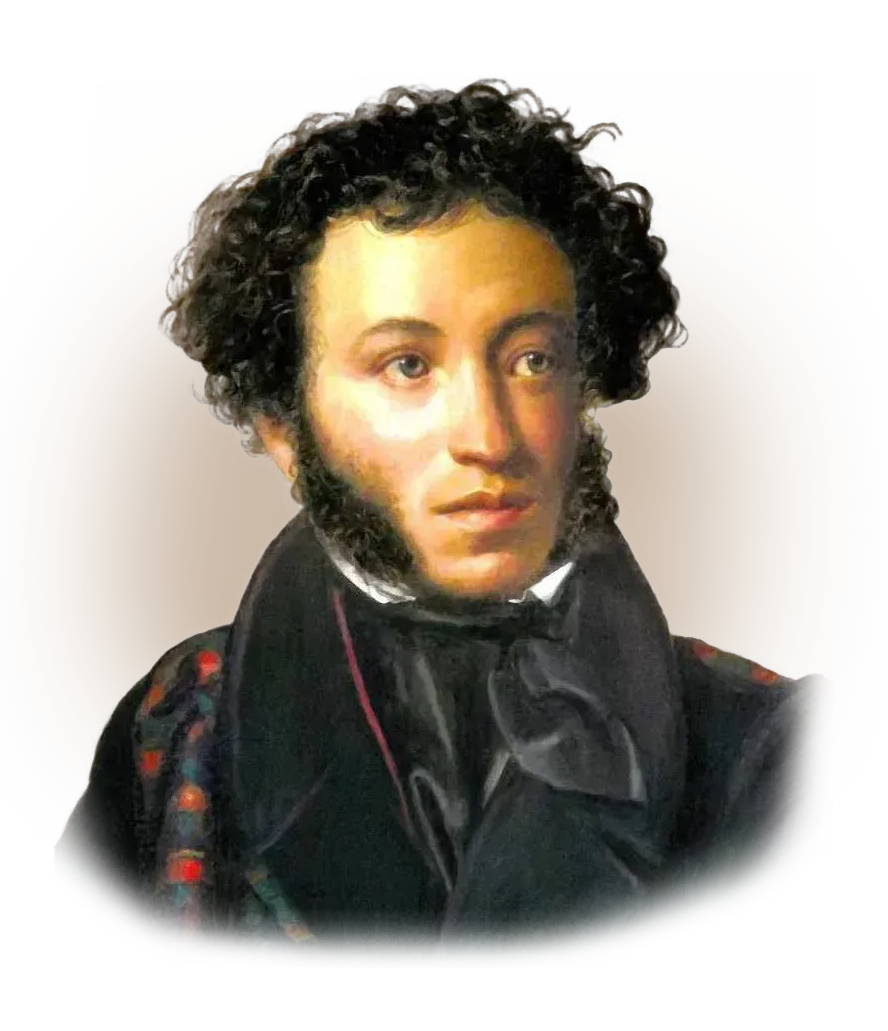
09.12.2022
Alexander Pushkin is a luminary of world literature, the main representative of the Golden Age.
Alexander Sergeyevich was born on June 6, 1799 in Moscow. His father was an amateur poet; his mother became famous only because her son was a famous poet.
1. The family
His parents were Sergei L. Pushkin and Nadezhda Osipovna Hannibal. Maternal grandfather – African Abram Petrovich Hannibal, who served under Peter the Great.
Sisters and brothers: only three survived: Alexander himself, Olga and Lev. Those who died when they were children were Nicholas, Sophia, Platon, Pavel, and Mikhail.
2. Education
Everyone probably already knows that Pushkin studied at the Tsarskoye Selo Lyceum in St. Petersburg. But few people know that his uncle, who knew Karamzin well, helped him to go there.
Pushkin studied at the Lyceum for six years. During this time he got a posh, by those standards, education and made a lot of friends with whom he communicated throughout his life.

3. Southern exile (20-24 years)
At the beginning of his work Pushkin writes many poems on the theme of liberty, freedom (“Liberty,” “The Village,” “To Chaadayev,” etc.).
Of course, the authorities do not like it, especially since there are already secret societies, creating conspiracies. And instead of being arrested, Pushkin is sent into exile to the south, to Kishinev and Odessa.
It is here that Pushkin begins to write his famous novel in verse “Eugene Onegin” and, of course, feeling his unfreedom, continues the theme of freethinking.
4. Northern exile (24-26 years)
Pushkin’s northern exile was at his own estate, Mikhailovsky. He was sent there with a suspicion of atheism, although in fact Pushkin was a believer.
While in Mikhailovskoye, Pushkin understands that friends are a gift of fate. A new inspiration comes, and the theme of friendship begins (“October 21,” “Pushchin”). He finishes his novel “Eugene Onegin” and writes a realistic tragedy “Boris Godunov”.
In the autumn of 26, Nicholas I releases Pushkin from exile, but puts him a warden – chief of the gendarmes Benckendorff.
5. The 1930s
In 1930 Alexander Sergeyevich marries Natalia Goncharova.
In the autumn of the same year he goes to the Boldino estate. There comes the inspiration, and Pushkin creates a lot of works – both poetry and prose. Autumn is generally Pushkin’s favorite time, and this time he especially liked it. That is why he and the next year goes to Boldino in the fall, and everything was repeated.
These periods were included in his biography as “Boldino Autumns.
Another great period of Pushkin can be called the period of writing “Captain’s Daughter. He seriously approached the case – he studied the history of Pugachev’s uprising in the archives, got permission to go to the Urals and Orenburg, and there he asked witnesses. We can say that he collected a complete picture of the Pugachev uprising, and told it on behalf of an ordinary man-witness.
You may also like:

09.12.2022
Where did Pushkin take the heroes for his works and who did he write about in his books?

09.12.2022
Alexander Sergeyevich Pushkin: The Life of a Russian Man

09.12.2022
Interesting facts about Alexander Sergeyevich Pushkin

25.04.2023
Alexander Pushkin's relations with his contemporaries
